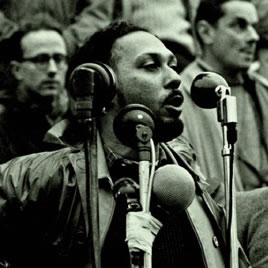The debate about voluntary euthanasia and assisted suicide has entered an important new stage. The House of Lords Select Committee on the 'Assisted Dying for the Terminally Ill' Bill has just issued its report. It invites further debate on the matter in the next session of Parliament, and anticipates that in the wake of such a debate a new bill may well be introduced. It recommends that any new legislation should distinguish clearly between assisted suicide and voluntary euthanasia so as to make it possible to address these two options separately, and it recommends that careful attention be given to the definition of important phrases such as 'terminal illness', 'mental competence' and 'unbearable suffering'. A new book on the moral arguments concerning euthanasia ought therefore to be welcome. Unfortunately the book reviewed here is a disappointment. Although it is published in a series called 'Contemporary Ethical Debates', it actually includes very little ethical debate. Part of the problem is that it is badly written. Not only are many individual sentences badly constructed, but the book as a whole is poorly organised, with frequent abrupt transitions from one topic to another, and little attempt to develop an extended argument over more than a page at a time.
The heart of the euthanasia debate is reached on p34, but is sustained for less than three pages. The arguments in favour of voluntary euthanasia are said to be:
* individual autonomy and the right to choose;
* loss of dignity and the right to maintain dignity;
* reduction of suffering;
* justice and the demand to be treated fairly.
The autonomy argument is said to be 'the most powerful argument', the other three 'can be brought in under its rubric' ' and there the argument is left! Although subsequently John Stuart Mill's classic essay On Liberty is invoked in support of the autonomy argument, no serious attempt is made to examine how it bears on the case of euthanasia. The value of autonomy does not mean that all choices are equally important and equally deserving of respect. We need a serious discussion of why choosing the manner of one's death is a choice which matters deeply to people, and why legislation should accommodate it. That case can be made, but it is not made here.
The two arguments against voluntary euthanasia are said to be the 'sanctity of life' argument and the 'slippery slope' argument. In response to the idea of the sanctity of life Tulloch comments that it 'had to accommodate the exceptions of just war theory ' killing in wartime ' plus self-defence and, for some, capital punishment. It could be argued that euthanasia could be seen as another exception.'
Maybe it could, but to leave the argument there is woefully inadequate. We need a serious discussion of whether talk of 'the sanctity of life' and 'respect for life' come to the same thing, whether talk of 'the sanctity of life' is exclusively religious or can be employed equally by humanists, whether the idea of life as the gift of a divine being should lead to a difference between how the religious and the non-religious view the value of life, and so on. No such discussion is provided in this book.
As for the 'slippery slope' objection, it is answered simply with two observations: (a) that just because technological advances make it possible to do something, it doesn't follow that it ought to be done, and (b) 'what is required is a higher-order consensus of commitment to the rule of law and democratic process.' How these points are supposed to bear on the slippery slope argument remains deeply unclear.
The book's positive value is in Part 2, where useful information is provided about examples of legislation and of legal test cases in Oregon, England, the Netherlands, and Australia. For illuminating ethical debate, however, you need to look elsewhere. Like Tulloch I think that the autonomy argument is a powerful case for legalising voluntary euthanasia, and that the 'sanctity of life' and 'slippery slope' objections can be answered.

